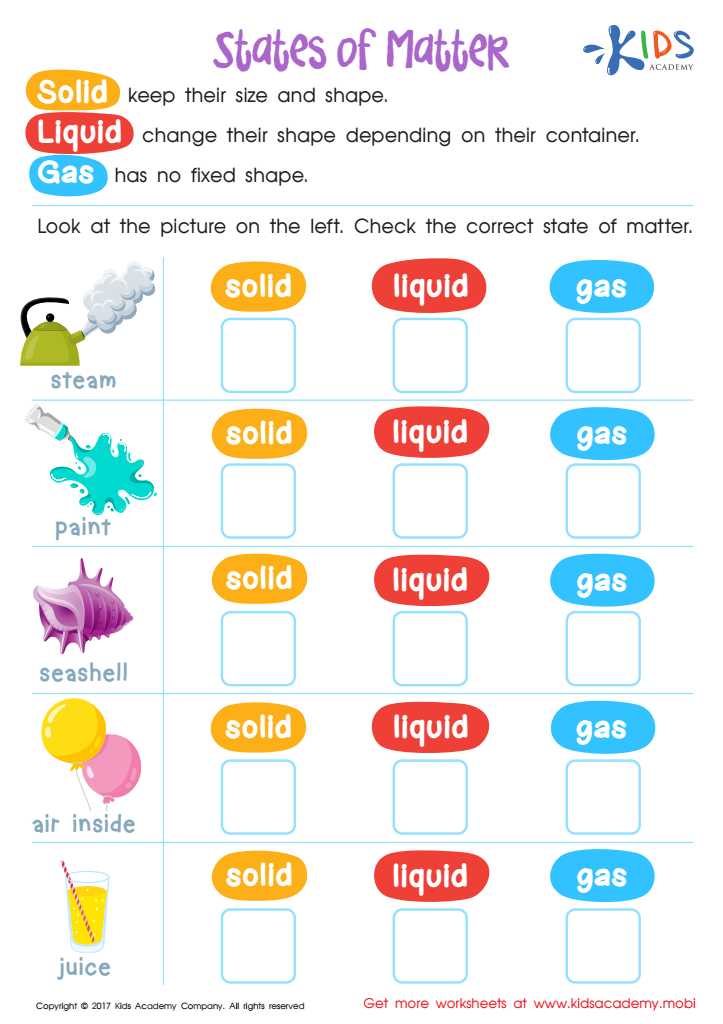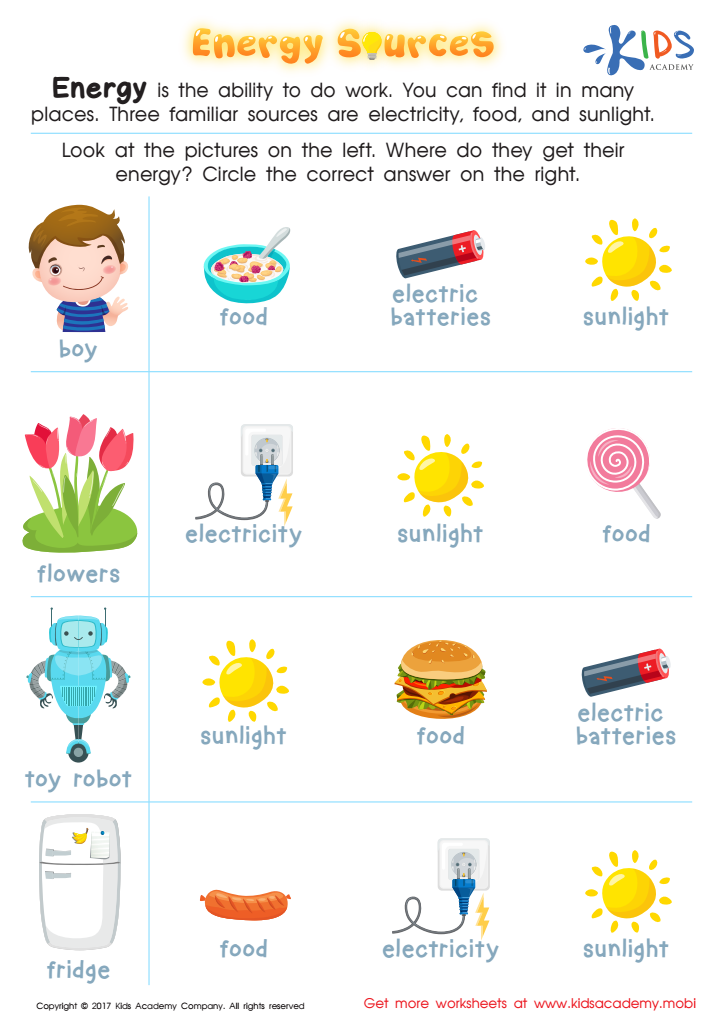Physical Science Worksheets for Ages 3-7
3 filtered results
-
From - To
Welcome to our collection of engaging Physical Science Worksheets designed specifically for young learners aged 3-7! Our worksheets introduce basic concepts of the physical sciences, allowing children to explore the world around them through exciting activities. Each worksheet focuses on essential topics like matter, forces, and simple machines, fostering curiosity and critical thinking skills. Parents and educators can easily integrate these resources into their teaching, as they're tailored to support early learning objectives. With colorful designs and interactive tasks, our worksheets make learning fun and effective! Encourage your child's scientific exploration today with our printable Physical Science resources.


Physical Science: States of Matter Worksheet


Sink or Float Printable


Energy Sources Printable
The foundational years of ages 3-7 are crucial for a child's development, and introducing concepts of Physical Science in this period has numerous benefits. Firstly, engaging with Physical Science fosters children's natural curiosity about the world around them. Simple experiments such as observing the properties of water, exploring magnets, or understanding basic forces can ignite a love for inquiry and exploration.
Moreover, early exposure to Physical Science enhances critical thinking and problem-solving skills. Children learn to make predictions, test their ideas, and observe outcomes, laying the groundwork for scientific reasoning. This hands-on learning approach supports the development of cognitive skills and prepares children for more complex concepts in later grades.
In addition, integrating Physical Science in early childhood education promotes communication skills. Children often discuss their observations and findings with peers and adults, enhancing their vocabulary and language proficiency.
Lastly, understanding basic Physical Science helps children make sense of everyday phenomena, empowering them to navigate and engage with their environment confidently. Ultimately, fostering a strong foundation in Physical Science can inspire a lifelong interest in science, technology, engineering, and mathematics (STEM) fields, promoting a well-rounded educational experience. This investment in early learning not only benefits individual children but cultivates informed future citizens.
 Assign to My Students
Assign to My Students















